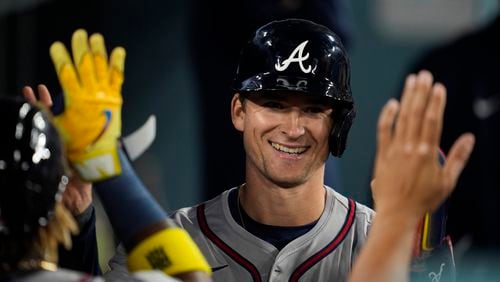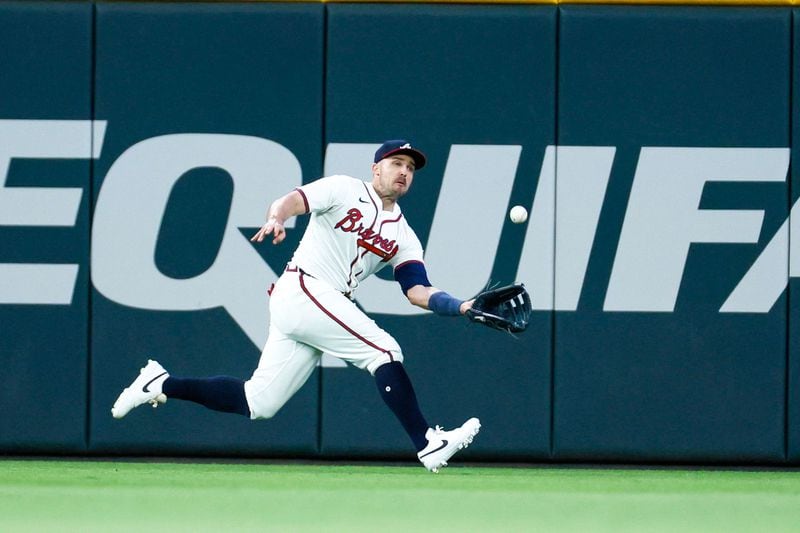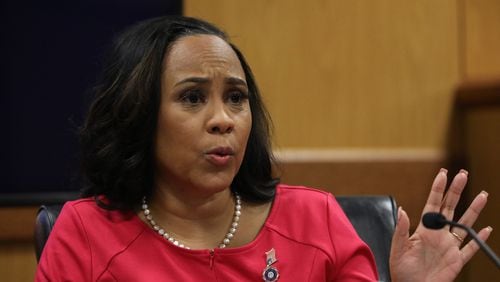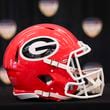Hey there,
In 2017, Luke Williams’ journey took him to winter ball in Colombia, where he took a four-hour van ride from the airport in Barranquilla to a small town called Sincelejo – the type of drive that made him wonder, ‘Man, what am I getting myself into?’ Here, he spent the holidays away from family for the first time in his life.
In 2020, his path sent him to Sydney, Australia, where he quarantined in a hotel for two weeks before he began playing in games. Australia is a beautiful country, he said, but he was stuck in the hotel at first, so he looked out a window and thought, ‘Man, this country’s really cool.’
In 2022, he went to the Dominican Republic, where he experienced insane atmospheres during games and played against tough competition. There, he learned from his manager, Fernando Tatis Sr. – father of San Diego’s Fernando Tatis Jr. – and continued playing baseball.
Those were just the winter-ball stops. They were trips Williams made because he cares so deeply about improving his craft. But before any of that, the Phillies drafted Williams in 2015. He didn’t debut until 2021. Since then, he has played for the Giants, Marlins, Dodgers and Braves.
“Well, I think what I’ve learned throughout my years so far is that everyone’s journey is different,” Williams told me in Seattle. “And I think a lot of us get trapped in this idea of, some players, they have the best careers, they play really well. And yeah, they’ve worked really hard for it, but not everyone gets that. And I think I’ve learned to appreciate my journey and what I’ve gotten to experience. I still have such a long way to go – hopefully. You just appreciate the game and appreciate the moments that you’ve experienced.”
Williams has a great job: He is an MLB player. But his role is difficult: As the 26th man on the roster, he hardly sees the field. Since the Braves brought him up April 19, he has one at-bat.
Not only do Braves starters play every day, but the inclusion of the universal designated hitter means that a couple bench players often go unused in a situation like this.
How has he learned to deal with it?
By loving the process – with a little help from the late, great Kobe Bryant.
Going into last offseason, Williams knew he needed to improve. He started reaching out to some people to seek help. He became connected with Jim Brogan, a mental performance coach who worked with Bryant.
“He’s an incredible man,” Williams said of Brogan. “He’s assisted me with just training my brain a little differently. He would tell a lot of stories about Kobe, and that’s when I started to kind of dive in a little bit more on Kobe. He had so many great podcasts before he passed. And so, I just was trying to listen to them as much as I could.”
And since the offseason, when he met with Brogan four times a week, Williams has watched a lot of the YouTube videos and podcasts Bryant did before he tragically died in a helicopter accident in 2020. Bryant often discussed enjoying the process.
“I think a big thing for me is falling in love with the process,” Williams said. “And (former infield coach Ron Washington) was a huge help for me last year. He was like, ‘All right, I’m gonna be here at the field, we’re gonna get early ground balls, 2 o’clock. We gotta get this work in.’ I think that was such a big help for me, to just understand that you gotta love the process. You gotta love it. And then when you get the opportunity to play, you just try to play free and play the best you can.”
But loving the process is easier said than done.
“And also, not every day is going to be happy-happy like, ‘All right, this process is working,’” Williams said. “And I think that’s kind of the beauty of it. Some days, you’re not gonna feel your best and you gotta dig deep and find a way to get the work in. You’re gonna feel a lot about yourself at the end of the day.”
We must give credit to Marlia, who is Williams’ girlfriend. Marlia had a mutual friend who had worked with Brogan, which is how Luke first connected with a man who has taught him a lot.
“It’s definitely been a life-changing experience for me,” he said. “I don’t want to give all the secrets and everything – Jim’s got some stuff – but it’s been incredible. I’m thankful for Jim, thankful for my girlfriend, Marlia. It’s definitely helped.”
Williams has an inspiring story. At Dana Hills (California) High, he often was the best player on the field, which is why the Phillies drafted him in the third round in 2015. But he hasn’t yet been an everyday player.
He went to Colombia for winter ball in 2017 because he didn’t have a good season in Low-A in the months before that. It took him six years to receive his first call-up. He has changed organizations more than a couple times.
At first, it was difficult to realize that, after a standout high school career, it might take him a while to reach the majors.
“I experienced failure really early,” Williams said. “And it was either sink or swim. Just like the Colombia experience: I didn’t have a good season, so I was like, ‘You know what, I’m gonna continue to play.’ Kept going, playing. I’ve had a lot of great teammates and coaches that believed in me. I just didn’t quit. I’m not gonna quit. I think that’s what the best baseball players do: They don’t quit.”
And in between the draft and his debut, Williams dealt with the scary thought that maybe he wouldn’t ever play in the big leagues. His love of the game, and a lesson from his dad, kept him going.
When Williams was younger, his dad always told him, “Never quit.”
“Whenever we started something, we had to finish,” he said. “And I just love this game, I love everything that comes with it – the successes, the failures. That not-quit mentality, I think, is huge in this game.”
We often discuss Ronald Acuña Jr. and Matt Olson, Austin Riley and Ozzie Albies. The stars get headlines. But Williams and his story remind us about why sports – and especially this one – are so great.
They inspire. Like us, players are human.
Williams hasn’t quit. He’s kept going, even when the going got tough. Despite hardly playing, he shows up to the ballpark and works hard. He’s a great teammate.
But we shouldn’t take pity on him, because the best might be yet to come.
Williams is confident there’ll come a time when he’s an everyday player for a team.
“Yeah. I know it,” he said. “I know it’s gonna come. Probably at a certain moment a couple years ago, I may not have believed it. But I know I’m in a good spot right now where I’m falling in love with my process. I’m still young, I’m 27 – I still got some time. I know it’s gonna come, I know it’s gonna come. But just the opportunity to be here and to learn from all these players, and to just kind of learn a new role, I know will benefit me in future endeavors. There’s a whole lot of time to go.”
Credit: Miguel Martinez
Credit: Miguel Martinez
Extra Innings
-On Tuesday, Adam Duvall made a wonderful sliding grab in left-center field. He caught a line drive headed toward the gap.
He had two opponents at that moment: the Red Sox, and the Truist Park lights.
“That’s tough,” Duvall said of fighting the lights. “I mean, that ball (Tuesday) night was in the lights a long way. It’s kind of like the sun ball. If that thing gets in the sun, there’s really nothing you can do. You just gotta kind of hang with it and then hope it comes out and hits your glove on it. If it goes in the sun or if it goes in the lights, there’s no pair of sunglasses (you can have) or there’s nothing that you can really do. You just gotta hope that it comes out in time that you can put a glove on it.”
Duvall saw it off the bat and began sprinting toward the gap. The ball was in the lights for a while, as he said, so he didn’t put his glove up to snag it. He let it travel, slid and put his glove on the grass.
He made a game-saving play.
-There’s something else I found interesting from Williams’ first winter-ball experience, in Colombia: It taught him about the culture shock international players must face when they come to the United States for pro ball.
“Because it’s like, we are so comfortable with the United States,” Williams said. “It was where we were born, where we grew up, and we think it’s amazing – and it is amazing. But it’s just so different to them.”
There are a couple of examples that illustrate how difficult it is to live in a foreign country.
In Colombia, Williams usually went to the same two restaurants. He had a Venezuelan teammate who served as his unofficial interpreter. Williams knew how to order chicken and rice, and plantain chips, in Spanish, so he mostly ate that. The winter league didn’t feed players, so he would make peanut butter and jelly sandwiches to take to the ballpark.
And there were street vendors, but be careful: Sometimes, the oil would be bad and someone who ate that food would be throwing up for a couple of days. It never happened to Williams, but he got the entire rundown from Jorge Alfaro, a catcher who has spent parts of eight seasons in the majors.
-Reynaldo López on Tuesday gave up a one-out triple in the fifth inning, then struck out the next two batters to escape unscathed. In one of those strikeouts, he did something really encouraging.
With two outs, he threw Tyler O’Neill four-seam fastballs at 97.6 mph and 98 mph. The 98-mph heater was the second-hardest pitch López has thrown this season, behind a 98.1 mph fastball to then-Marlins hitter Luis Arraez in April.
Because of his transition back to starting, López hasn’t thrown as hard. To this point, he’s averaged 95.2 mph with his fastball, as opposed to 98.2 mph as a reliever last season.
This is to be expected. López must throw six innings instead of one. He must conserve his energy.
But it was nice to see him throw that heat when necessary.
“Yeah, it feels great,” López said. “It feels almost like a gift, or like a weapon, just to be able to know you have that in your back pocket, to reach back and do it. I think it’ll catch some hitters by surprise, especially if they’ve just been seeing 94 (mph) and 95 (mph) the whole day. And just to be able to reach back, it’s great.”
Left-handed reliever Aaron Bummer and López were teammates on the White Sox. It’s been fun for Bummer to see López deal as a starter.
“I would say that when he was starting a couple years ago, he was more of a thrower,” Bummer said. “He was out there letting it eat. I think it was in the fifth inning when he was out there (Tuesday and threw 98 mph), he’s still got it in the tank. And he’s choosing when to use it and he knows when to use it. He’s learning how to pitch and it’s fun to watch the development of it all.”
This speaks to López’s maturation as a pitcher.
“I think in that time (in the bullpen), he learned a lot, just with the experience and different situations,” Braves manager Brian Snitker said. “It probably did him well (for) this next stint in starting. They figure things out. He’s been very, very good, I know that, about kind of – I don’t feel like it’s pacing, I think he’s pitching. He’s pitching and not pacing himself. He’s pitching and when he has to reach back and get more, it’s there, which I think is a very healthy thing to do.”
-Sean Murphy (left oblique strain) has reached a new point in his progression: He’s now hitting in the batting cage. It sounds like a coach is throwing batting practice to him in the cage.
Murphy has been sidelined since he left opening day early. In his absence, Travis d’Arnaud and Chadwick Tromp have done a nice job.
The Braves, though, certainly will receive a boost when Murphy is healthy. We don’t yet know when that’ll be.
About the Author








